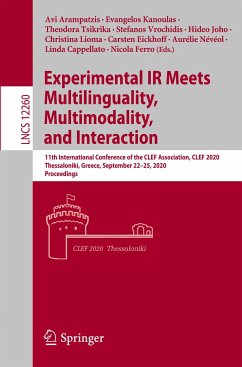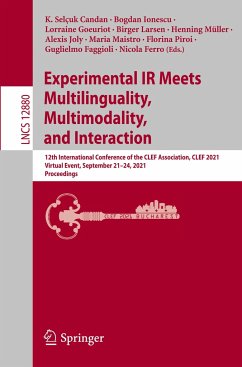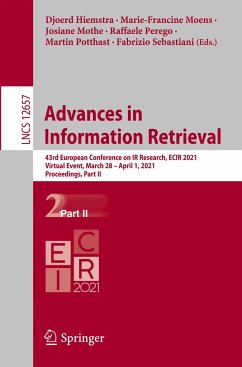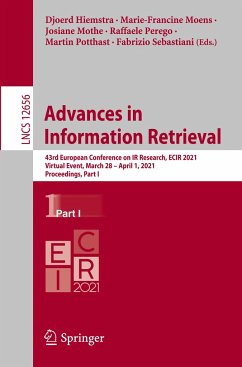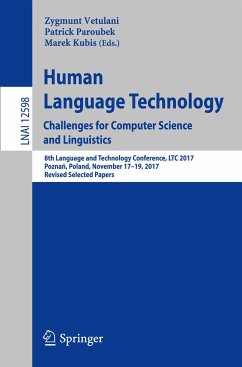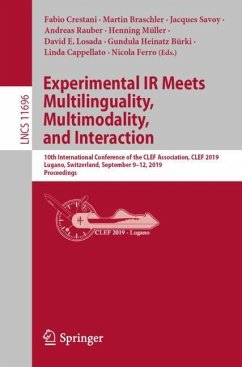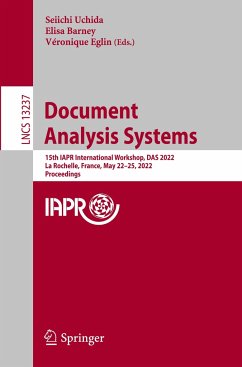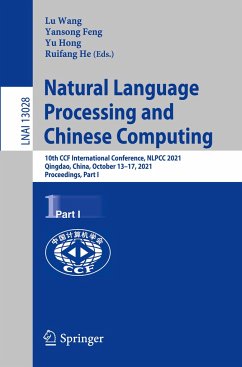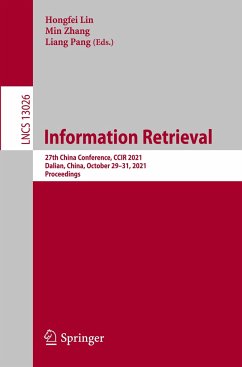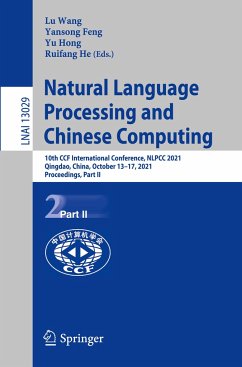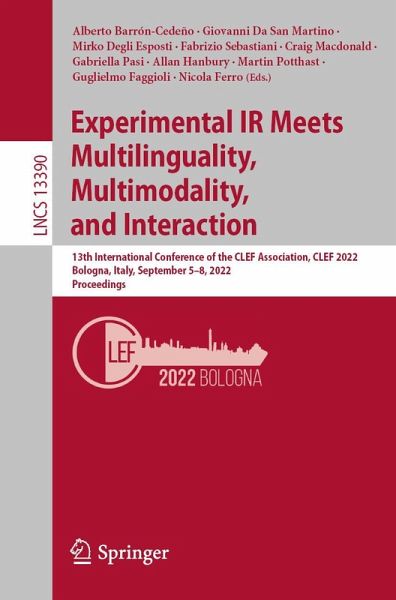
Experimental IR Meets Multilinguality, Multimodality, and Interaction
13th International Conference of the CLEF Association, CLEF 2022, Bologna, Italy, September 5-8, 2022, Proceedings
Herausgegeben: Barrón-Cedeño, Alberto; Da San Martino, Giovanni; Degli Esposti, Mirko; Sebastiani, Fabrizio; Macdonald, Craig; Pasi, Gabriella; Hanbury, Allan; Potthast, Martin; Faggioli, Guglielmo; Ferro

PAYBACK Punkte
34 °P sammeln!
This book constitutes the refereed proceedings of the 13th International Conference of the CLEF Association, CLEF 2022, held in Bologna, Italy in September 2022.The conference has a clear focus on experimental information retrieval with special attention to the challenges of multimodality, multilinguality, and interactive search ranging from unstructured to semi structures and structured data.The 7 full papers presented together with 3 short papers in this volume were carefully reviewed and selected from 14 submissions. This year, the contributions addressed the following challenges: authorshi...
This book constitutes the refereed proceedings of the 13th International Conference of the CLEF Association, CLEF 2022, held in Bologna, Italy in September 2022.
The conference has a clear focus on experimental information retrieval with special attention to the challenges of multimodality, multilinguality, and interactive search ranging from unstructured to semi structures and structured data.
The 7 full papers presented together with 3 short papers in this volume were carefully reviewed and selected from 14 submissions. This year, the contributions addressed the following challenges: authorship attribution, fake news detection and news tracking, noise-detection in automatically transferred relevance judgments, impact of online education on children's conversational search behavior, analysis of multi-modal social media content, knowledge graphs for sensitivity identification, a fusion of deep learning and logic rules for sentiment analysis, medical concept normalization and domain-specific information extraction.
In addition to this, the volume presents 7 "best of the labs" papers which were reviewed as full paper submissions with the same review criteria. 14 lab overview papers were accepted and represent scientific challenges based on new datasets and real world problems in multimodal and multilingual information access.
The conference has a clear focus on experimental information retrieval with special attention to the challenges of multimodality, multilinguality, and interactive search ranging from unstructured to semi structures and structured data.
The 7 full papers presented together with 3 short papers in this volume were carefully reviewed and selected from 14 submissions. This year, the contributions addressed the following challenges: authorship attribution, fake news detection and news tracking, noise-detection in automatically transferred relevance judgments, impact of online education on children's conversational search behavior, analysis of multi-modal social media content, knowledge graphs for sensitivity identification, a fusion of deep learning and logic rules for sentiment analysis, medical concept normalization and domain-specific information extraction.
In addition to this, the volume presents 7 "best of the labs" papers which were reviewed as full paper submissions with the same review criteria. 14 lab overview papers were accepted and represent scientific challenges based on new datasets and real world problems in multimodal and multilingual information access.





